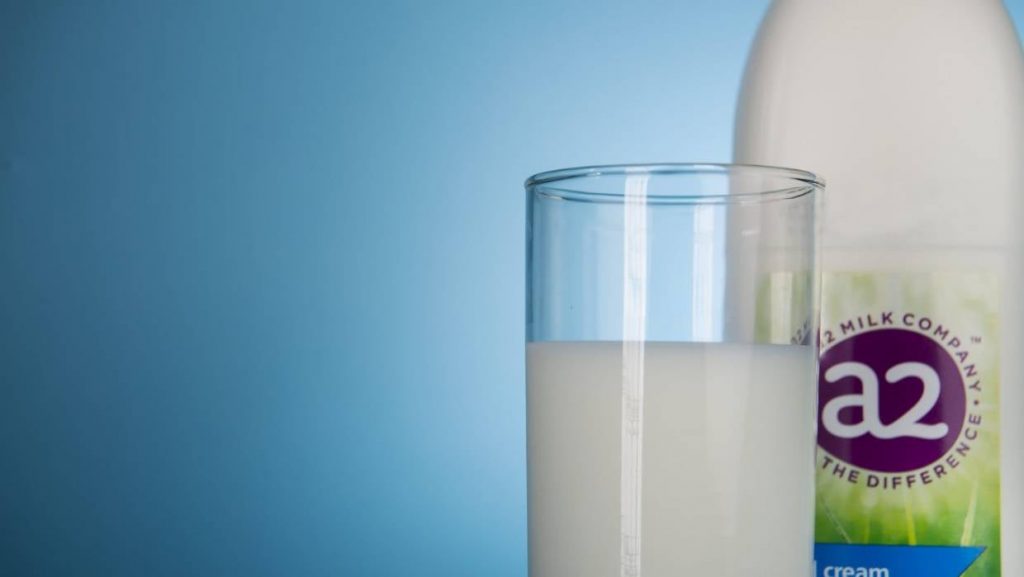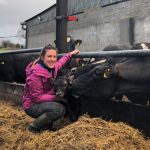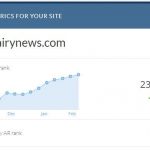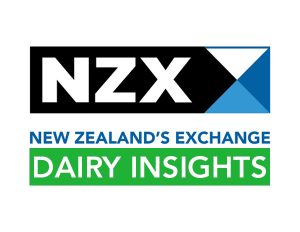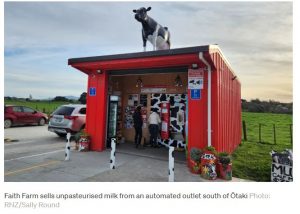
But with a 16,096 per cent return over the 10 years to December 31, 2019, it is New Zealand’s own a2 Milk Company (A2MC) that produced the best return of the decade to take out first place in the MSCI World Index – the flagship global equity index. So how has this Kiwi consumer staple defied all odds to spread its wings and fly?
The answer is part science, part timing, wrapped within a story of classic Kiwi ingenuity and branding and a fearlessness to punch above its weight in a global market.
A2 milk is still milk – a natural product, enhanced by selective process not genetically modified or lab-grown. It therefore retains mass-market appeal – and when this mass market happens to include China, the world’s largest consumer of powdered milk infant formula, then the opportunity for table-topping growth becomes apparent.
The keyword here, though, is opportunity. There have been plenty of well-resourced and reputable Australasian companies that have had the opportunity to benefit from Chinese demand for quality but failed.
Why A2MC has succeeded is just as much down to what it has put in, as to what it has taken out.
Closer inspection of the ingredients for this success should therefore be a must for all other Kiwi businesses seeking to break into lucrative overseas markets, and particularly China.
1) Genuine product differentiation
Not all milks are equal! A2MC produces premium dairy products, selecting only cattle with milk free of the A1 beta-casein protein property, which has been linked through scientific research to digestive discomfort for some consumers.
This selective process leaves milk with only the A2 beta-casein, aka the good stuff, hence the brand name.
2) Unique Selling Point
Enticing consumers requires more than just being different. The difference needs to reflect a credible, unique benefit which should in turn be inherent within the overall brand proposition.
A2MC market their a2 milk as a premium, unique proposition, emphasising the science-based differentiation as a potential solution to digestive discomfort experienced by some consumers.
3) Economic moat
Companies need to protect themselves from imitators. This can take many forms including patents, trademarks and proprietary technical process expertise.
A2MC protected their intellectual property expertly by wrapping around dozens of patent families. These have afforded them the time and market structure to monetise their first mover advantage. Some key patents have rolled-off and there are a2 copycats available.
Nevertheless, they still hold a number of patents that extend to 2030-2050 – and their astute and ongoing investment in brand building has subordinated the significance of patents as their most powerful shield.
4) Value chain
Companies have experienced challenging times simply because they did not understand where and how much of their product was in channels as inventory. This is a crucial area that requires close monitoring and management.
A2MC differed from many of its peers in building healthy relationships with legitimate Daigou resellers. While not providing ultimate control, this afforded appropriate transparency into inventory levels, sales rates and location of product.
In China, enormous value is placed on safety, credibility, provenance and integrity of supply-chain. To this end, A2MC’s direct investment in Synlait as the manufacturer of its a2 Platinum product, and the clarity with which it can share the NZ dairy story and Synlait’s world-leading manufacturing process, has been fundamental to its success.
5) Regulation
Looked at through a western lens, the evolving Chinese consumer, trade and regulatory landscape is complex and not easily navigable. When it entered the market, A2MC sensibly partnered with China State Farms (CSF), which as a State-Owned-Enterprise could be considered an extension of the government itself.
CSF remains the exclusive import arranger for A2MC products. Overall, the relationship has been extremely mutually beneficial.
For A2MC, it has been able to lean on CSF for insights regarding forthcoming risk factors – and then when further insight has been needed, it has been humble enough to invite views from expert consultants to allow confident, evidence-based decision-making.
6) Premium Product
China’s socio-economic advancement has been incredible, affording many households sufficient disposable income to purchase premium products such as A2MC’s. The dynamic of trading up is prevalent across many industries including automobiles, clothes, cosmetics and, food and beverage (F&B).
In F&B, the current generation of consumers are skipping mass-market entirely and directly entering at premium offerings. Companies unable to offer more premium brands and products may struggle to capture new Chinese consumers.
7) The pre-requisites
A costly mistake made by some NZ companies seeking to profit in and from the Chinese market is to have assumed that the ‘clean and green’ image of New Zealand is itself a sufficient trading chip.
The Chinese consumer today has a far more layered outlook, meaning there are several crucial determinants of success within the New Zealand story alone. Beyond the English label – a proxy for a rubber stamp of quality assurance – these include an authentic provenance story, evidence of popularity in its home market and a brand that resonates.
8) Thriving in the digital age
Ever-improving e-commerce capability has empowered aspiring companies to bypass traditional distribution channels to contest with dominant incumbents for market share on a newly levelled playing field.
Over the last decade, there has been a considerable shift from supermarkets and hypermarkets to e-commerce and specialised Mother & Baby Stores. These trends are expected to continue.
Similarly from a marketing perspective, Chinese consumers are no longer passive receptors of mass market persuasion. Where once they were uniquely reliant on paid-for TV advertising, consumers are now actively engaged via social media and are empowered by transparency achieved through instant price discovery and customer reviews.
WeChat has been a vital platform for A2MC, allowing NZ and Australian-based Chinese consumers to relate the a2 brand story, differentiation and USP to their family, friends and associates at home.
9) Be genuine
It is in times of crisis that the true nature of relationships are often revealed.
A2MC’s response to the coronavirus outbreak has underscored the value it places in a genuine two-way relationship with its Chinese customers, providing peace of mind that their babies will still have access to the nutrition they need.
In the last week it has sent 100 tonnes of emergency supplies to Wuhan in the first direct flight allowed into Wuhan since the Covid-19 virus outbreak, and announced initiatives to support Chinese families affected by the impact of coronavirus in China through the donation of cash, product and research.
With its record growth intrinsically linked to (although through product diversification and expansion of key markets not reliant on) the China market, A2MC is a New Zealand success story we should both celebrate and learn from.
These lessons are by no means unique to our dairy industry. Comvita Honey, Delegats, NZ King Salmon and Sanford are just some of the companies primed to follow suit. But just like with A2MC, it’s up to them to make the most of the opportunity to build success.
– Michael De Cesare is a portfolio manager at Nikko AM
